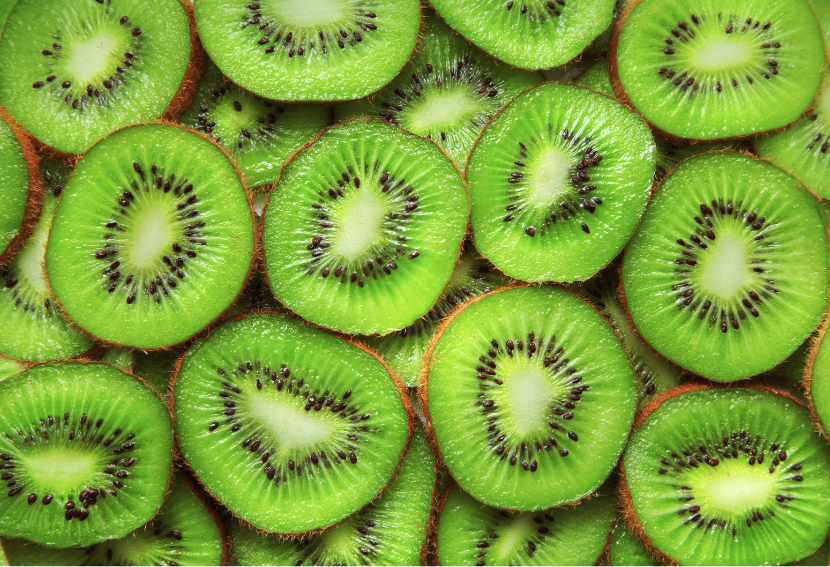In our modern fast-paced society, achieving a restful night’s sleep is often easier said than done. The importance of quality sleep cannot be overstated as it plays a pivotal role in maintaining our overall well-being. While factors such as stress and lifestyle choices can impact sleep, one often overlooked aspect is the influence of diet. The foods we consume can significantly affect the quality of our sleep and there is a variety of foods that have been scientifically proven to enhance sleep quality.
Before delving into specific foods, it is crucial to understand the connection between nutrition and sleep. Certain nutrients contribute to the regulation of sleep-inducing hormones, such as melatonin and serotonin. Additionally, some foods contain amino acids that aid in the production of neurotransmitters that promote relaxation. Let us now take a look at some foods that can help us to improve our hormonal balance and sleep quality.

Cherries, especially tart cherries, are nature’s sleep aid as they are a rich source of melatonin – the hormone responsible for regulating sleep-wake cycles. A study published in the Journal of Medicinal Food found that consuming tart cherry juice increased melatonin levels, and improved sleep duration and quality in participants. In fact, tart cherry juice has even been studied for its role in relieving insomnia. Thus, incorporating fresh cherries or a glass of cherry juice into your evening routine might just be the sweet remedy for a peaceful night’s sleep.

A nutrient-packed sleep booster, kiwi is a small fruit with big benefits for sleep. It is a natural source of serotonin, a neurotransmitter that plays a crucial role in regulating mood and sleep-wake cycles. Additionally, kiwi is rich in antioxidants and vitamin C, which may help to reduce inflammation and promote overall health. A study published in the Asia Pacific Journal of Clinical Nutrition found that consuming kiwi on a regular basis was linked to improved sleep onset, duration and efficiency. In the 4-week study, 24 adults consumed two kiwi fruits an hour before going to bed each night. At the end of the study, it was found that participants fell asleep 42% more quickly than when they did not eat anything before bedtime. Furthermore, their ability to sleep through the night without waking improved by 5%, while their total sleep time increased by 13%
 Fatty fish, such as salmon, mackerel and trout, are not only excellent sources of omega-3 fatty acids, but also vitamin D. These nutrients are associated with the production of serotonin, the feel-good neurotransmitter. Omega-3s, in particular, have been linked to improved sleep quality and a reduced risk of sleep disturbances. In a study published in the Journal of Clinical Sleep Medicine, it was found that men who ate 300g of Atlantic salmon three times a week for six months fell asleep about 10 minutes faster than men who ate chicken, beef or pork. This effect was thought to be the result of vitamin D. Those in the fish group had higher levels of vitamin D, which was linked to a significant improvement in sleep quality. Eating fatty fish two to three times a week may contribute to more restful slumber – omega-3s for sweet dreams indeed!
Fatty fish, such as salmon, mackerel and trout, are not only excellent sources of omega-3 fatty acids, but also vitamin D. These nutrients are associated with the production of serotonin, the feel-good neurotransmitter. Omega-3s, in particular, have been linked to improved sleep quality and a reduced risk of sleep disturbances. In a study published in the Journal of Clinical Sleep Medicine, it was found that men who ate 300g of Atlantic salmon three times a week for six months fell asleep about 10 minutes faster than men who ate chicken, beef or pork. This effect was thought to be the result of vitamin D. Those in the fish group had higher levels of vitamin D, which was linked to a significant improvement in sleep quality. Eating fatty fish two to three times a week may contribute to more restful slumber – omega-3s for sweet dreams indeed!
Whole grains, such as quinoa, brown rice, and oats, are complex carbohydrates that have a positive impact on serotonin levels and fuel a restful night’s sleep. These grains have a low glycemic index, which means they release energy slowly, providing a steady supply of glucose to the brain throughout the night. This can help to prevent blood sugar fluctuations that may disrupt sleep. Whole grains also contain two sleep-promoting nutrients in melatonin and zinc. Research suggests that eating more whole grains may reduce the risk of insomnia, while eating more refined grains may have the opposite effect, increasing a person’s risk of insomnia.
Bananas can be more than just a convenient and tasty bedtime snack; they also contain several sleep- promoting nutrients that can help to improve your sleep quality. Rich in magnesium and potassium, bananas help to relax muscles and regulate blood pressure, creating an optimal environment for sleep. Furthermore, bananas contain tryptophan, an amino acid that serves as a precursor to serotonin and melatonin. Enjoying a banana as a bedtime snack or incorporating it into a soothing smoothie can be a simple and effective way to support sleep.
Almonds are a nutritional powerhouse for sleep. They boast a combination of magnesium, melatonin and healthy fats that can all help to improve your sleep quality. Magnesium plays a crucial role in muscle relaxation and stress reduction, while melatonin regulates the sleep-wake cycle. A study published in the Journal of Research in Medical Sciences suggests that magnesium supplementation can improve sleep quality. Including a handful of almonds in your evening routine may contribute to a more relaxed and restful night. On the other hand, another study published in the Journal of Natural Medicines examined the effects of feeding rats 400mg of almond extract. The research found that the rats slept longer and more deeply than they did without consuming almond extract.

You can sip your way to a restful night’s sleep by taking in herbal teas before bedtime. Herbal teas have long been valued for their calming properties, making them an ideal pre-bedtime beverage. Chamomile tea, in particular, contains antioxidants like apigenin, which may bind to receptors in the brain and promote sleepiness. In a study published in BMC Complementary Medicine and Therapies, it was found that adults who consumed 270mg of chamomile extract twice daily for 28 days fell asleep 15 minutes faster and experienced less nighttime wakening compared to those who did not consume the extract. Likewise, in a 2015 randomised controlled trial, women who drank chamomile tea for two weeks reported improved sleep quality compared to non-tea drinkers. Those who drank chamomile tea also had fewer symptoms of depression, which is commonly associated with sleep problems. Another herbal tea which may help to improve sleep quality is passionflower tea. Passionflower tea also contains apigenin which produces a calming effect by binding to certain receptors in the brain. There is also some evidence to suggest that passionflower increases the production of the brain chemical gamma aminobutyric acid (GABA). GABA works to inhibit other brain chemicals that induce stress, such as glutamate. Besides chamomile tea and passionflower tea, peppermint tea is another excellent choice as it helps to relax the muscles and soothe the digestive system. So, sip on a warm cup of herbal tea before bedtime to wind down your day and get a good night’s sleep.
Dairy products, such as milk and yogurt, are excellent sources of calcium. Calcium plays a crucial role in the production of melatonin, helping to regulate the sleep-wake cycle. Additionally, dairy also contains the amino acid tryptophan, contributing to its sleep-inducing properties. In particular, milk has been shown to improve sleep in older adults, especially when paired with light exercise. So, enjoy a warm glass of milk or a small serving of yogurt before bedtime as a comforting and nutritious way to support a restful night’s sleep.
Walnuts are a good source of omega-3 fatty acids, melatonin and tryptophan. In fact, walnuts are probably one of the best sources of melatonin around. In addition, the fatty acid makeup of walnuts may also contribute to better sleep. Walnuts provide alpha-linolenic acid (ALA), an omega-3 fatty acid that is converted to DHA in the body, which may increase serotonin production. Include a small handful of walnuts in your evening snack or incorporate them into a bedtime smoothie to provide a sleep-inducing nutritional boost.

CONCLUSION
In our quest for improved sleep quality, paying attention to dietary choices can be a game-changer. The foods mentioned in this article are not only delicious, but also backed by scientific research for their positive impact on sleep. However, it is essential to remember that individual responses to foods may vary, and lifestyle factors such as regular exercise, stress management, and a consistent sleep routine also play crucial roles in overall sleep health.
Thus, remember to create a balanced and varied diet that includes a combination of these sleep-friendly foods, while maintaining a consistent sleep routine and addressing other lifestyle factors. These can contribute to a more restful night’s sleep. It is always advisable to listen to your body and make adjustments based on your individual needs and preferences.
@PRIME










